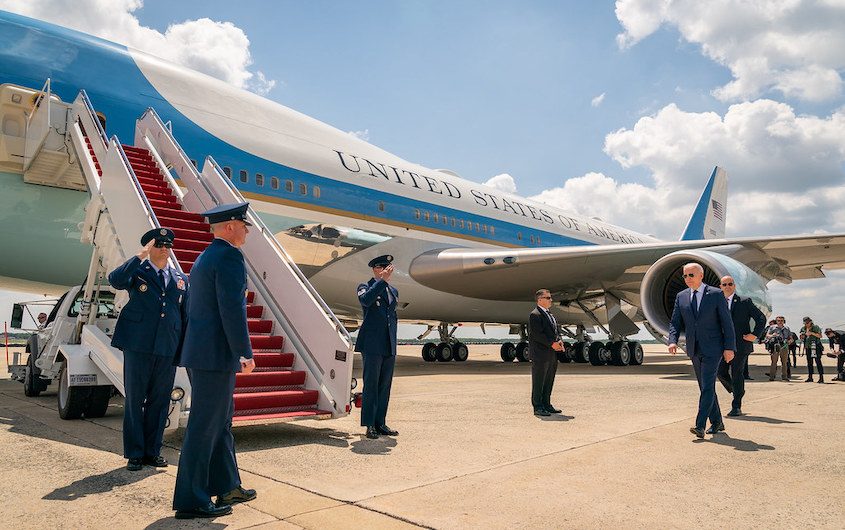AGI News
Biden Should Think Big on the U.S.-EU Trade Agenda

The White House, via Flickr

Peter S. Rashish
Vice President; Director, Geoeconomics Program
Peter S. Rashish, who counts over 30 years of experience counseling corporations, think tanks, foundations, and international organizations on transatlantic trade and economic strategy, is Vice President and Director of the Geoeconomics Program at AICGS. He also writes The Wider Atlantic blog.
Mr. Rashish has served as Vice President for Europe and Eurasia at the U.S. Chamber of Commerce, where he spearheaded the Chamber’s advocacy ahead of the launch of the Transatlantic Trade and Investment Partnership. Previously, Mr. Rashish was a Senior Advisor for Europe at McLarty Associates, Executive Vice President of the European Institute, and a staff member and consultant at the International Energy Agency, the World Bank, UN Trade and Development, the Atlantic Council, the Bertelsmann Foundation, and the German Marshall Fund.
Mr. Rashish has testified before the House Financial Services Subcommittee on International Monetary Policy and Trade and the House Foreign Affairs Subcommittee on Europe and Eurasia and has advised three U.S. presidential campaigns. He has been a featured speaker at the Munich Security Conference, the Aspen Ideas Festival, and the European Forum Alpbach and is a member of the Board of Directors of the Jean Monnet Institute in Paris and a Senior Advisor to the European Policy Centre in Brussels. His commentaries have been published in The New York Times, the Financial Times, The Wall Street Journal, Foreign Policy, and The National Interest, and he has appeared on PBS, CNBC, CNN, NPR, and the BBC.
He earned a BA from Harvard College and an MPhil in international relations from Oxford University. He speaks French, German, Italian, and Spanish.
AGI Senior Fellow and Director of Geoeconomics Program Peter Rashish writes in World Politics Review about the U.S.-EU summit on June 15, 2021.
“When U.S. President Joe Biden participates in his first summit between the United States and the European Union tomorrow in Brussels, he should keep the focus on the big picture. While easing bilateral irritants would improve the tone of relations in the short term, the real test will be whether the U.S. and the EU can forge a common agenda of trans-Atlantic economic statecraft for the two key global challenges they face: China’s state capitalism and the existential threat of climate change.”
The article originally appeared in World Politics Review on June 14, 2021. Read the complete article here.








